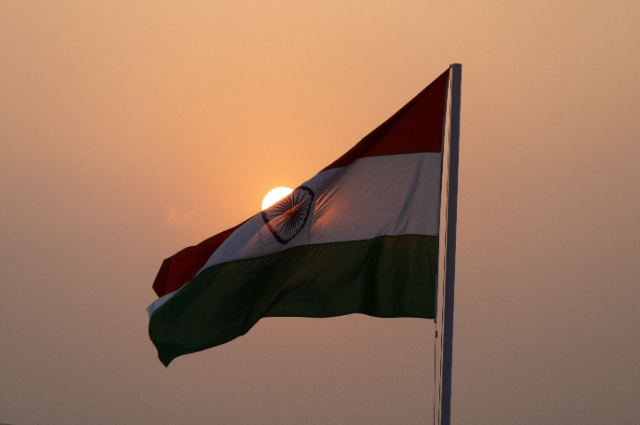
Image by still pixels from Pexels
This speech became one of the most memorable moments in Indian political history. However, six years have passed since then, and it is essential to evaluate whether these promised "acche din" have been delivered. Modi's speech resonated with millions of Indians who were hopeful for change and development. He promised economic growth, job opportunities, and an end to corruption. His charismatic personality and strong leadership skills convinced many that he could deliver on his promises. While there have been some positive changes during Modi's tenure, such as the implementation of various welfare schemes and infrastructure development projects, the reality falls short of the promised "acche din." Let me walk you through the struggle that the people are going through despite electing PM NARENDRA MODI.
Education is frequently regarded as the key to success and a path to a better future. How can we have or hope to have a better future where there still exists a major challenge of education inequality and limited access to quality education? Poverty is one of the primary causes of educational inequality. Poor families struggle to meet their basic needs, let alone invest in their children's education. As a result, low-income children are more likely to attend underfunded schools with limited resources and undertrained teachers. As a result, these students are less likely to receive the necessary skills and knowledge for higher education or employment opportunities, perpetuating a cycle of disadvantage. In addition, gender discrimination contributes to educational inequality. Girls are still denied access to education in many cultures due to traditional beliefs or societal norms that prioritise boys' education over girls. This not only limits girls' potential but also perpetuates societal gender inequalities. Governments must prioritise investment in public education by allocating adequate funds for infrastructure improvements, teacher training programmes, and scholarships or financial aid for disadvantaged students.
Being in the 21st century we still discriminate against people based on caste. No matter how we modernize our culture we still struggle with being discriminated by caste. Discrimination based on caste perpetuates social inequality by denying marginalised groups basic rights and opportunities. Discrimination based on caste restricts people's access to education, healthcare, employment, and political representation. growing caste-based discrimination leads to psychological trauma among those who are subjected to it. Constant humiliation and exclusion from mainstream society can have severe emotional consequences for individuals belonging to marginalized castes. The resulting low self-esteem and lack of confidence hinder their ability to break free from the cycle of poverty and oppression. Government must completely remove the caste system from every sector so that people won’t have to be discriminated by caste. As it would lead to bring love among people and cause to dissolve the growing hatred people are spreading because of caste differentiation.
Poverty, income inequality, and lack of basic necessities are pressing issues that continue to plague societies worldwide. Individuals living in poverty have few opportunities for personal development and growth. They are trapped in a cycle of poverty that is difficult to break if they do not have access to quality education or healthcare services. The lack of basic necessities perpetuates an environment in which people struggle to meet their basic needs. This not only has an impact on their physical health, but it also limits their ability to contribute meaningfully to society. Poverty alleviation programmes that focus on providing quality education, healthcare, and job opportunities for all citizens must be prioritised by governments. Furthermore, income disparities should be reduced through progressive taxation policies and fair labour practices. widespread impoverishment Income inequality and a lack of basic necessities are deeply rooted issues that require immediate action from governments around the globe. Societies can foster inclusive growth where everyone has equal access to essential resources for a better future by implementing effective policies aimed at eradicating poverty and reducing income disparities.
Despite significant progress in women's rights, these issues persist in our modern world. The consequences of gender discrimination are far-reaching. Women often face limited career opportunities due to biases against their abilities. Additionally, unequal pay exacerbates economic disparities between genders, leaving women more vulnerable to poverty and financial instability. Government must work towards a more equitable future for all genders by passing legislation that promotes fairness in the workplace.
Politics is one area where corruption is prevalent. When politicians engage in corrupt practises such as bribery or embezzlement, personal gain takes precedence over public welfare. As a result, decisions are made based on personal interests rather than the needs of the people, resulting in a lack of accountability and transparency. Corruption has a negative impact on public services like healthcare and education. When funds intended for these critical services are diverted through corrupt means, citizens lose their right to quality healthcare and education. No wonder why politicians are so rich in India. To effectively combat this issue, governments must prioritise anti-corruption measures such as increasing transparency, strengthening accountability mechanisms, and imposing harsh penalties on those who engage in corrupt practises.
In conclusion, while Narendra Modi's "acche din" speech inspired hope for a better future among Indians, it is clear that the promised transformation has not been fully realised. Economic challenges coexist with social tensions. Leaders must be held accountable for their promises and work towards inclusive growth for all segments of society. We as a society are also responsible as we should elect a prime minister that genuinely shows the urge to change the country from a very small to a big issue that the country lacks. We have a right to vote so we should be held accountable because we keep voting for these people who fake promises to citizens of so-called acche din where people are still struggling with poverty, gender inequality, income inequality, basic necessities, caste discrimination, and the list doesn’t end here. So we should vote for the candidate that is truly willing to change the country for a better future.
